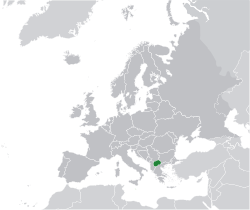The LGBTI community remained marginalized, and activists supporting LGBTI rights reported incidents of societal prejudice, including hate speech. The CSO Coalition Margini documented 70 cases of violence against LGBTI individuals, five cases of discrimination, and one case of verbal assault by a police officer during the year. In one case fellow students verbally and physically attacked an LGBTI high school student, resulting in a broken nose. The student reported the case to the principal but chose not to report it to the police. Additionally, Margini noted most cases of violence against LGBTI persons are not reported to police or other institutions. According to the coalition, the Skopje public prosecutor remained ineffective in processing pending cases involving hate speech targeting members of the LGBTI community. On January 17, the European Court of Human Rights (ECHR) found the country violated the privacy rights, as well as the right to appeal, of a transgender person related to the gender change procedure. The court required the government to pay €9,000 ($9,900) in damages to the unnamed applicant. Despite the court ruling, NGOs complained the government failed to recognize gender identity changes in identification documents.
On June 29, the day of the country’s first ever pride parade, approximately 20 persons attacked prominent LGBTI activist Bekim Asani in Skopje. The aggressors chased Asani and six other LGBTI activists down the street, pulled them out of a taxi, beat Asani, and threatened to kill him and the other activists. Police arrested the assailants and opened a criminal investigation.
CSOs noted deficiencies and improved the legislative framework to protect the LGBTI community from discrimination. The Law on Primary Education, adopted in July, introduced antidiscrimination language related to sexual orientation and gender identity. The Law on Prevention and Protection from Discrimination, adopted in May, explicitly forbids discrimination based on sexual orientation and gender identity in all areas. Amendments to the Criminal Code specifically list sexual orientation and gender identity in the section regulating hate speech.
The first Pride Parade took place in June. Police ensured the safety of approximately 2,000 participants that included members of parliament and government ministers. The parade triggered some hate speech on social media.
Unlike the previous years, the 2025 Pride Parade featured heavy socialist, pro-palestinian, and anti-fascist sentiment, featuring multiple socialist organizations, however due to organizers declaring it a protest, foreign embassies pulled funding which decreased the number of attendees. [31]
